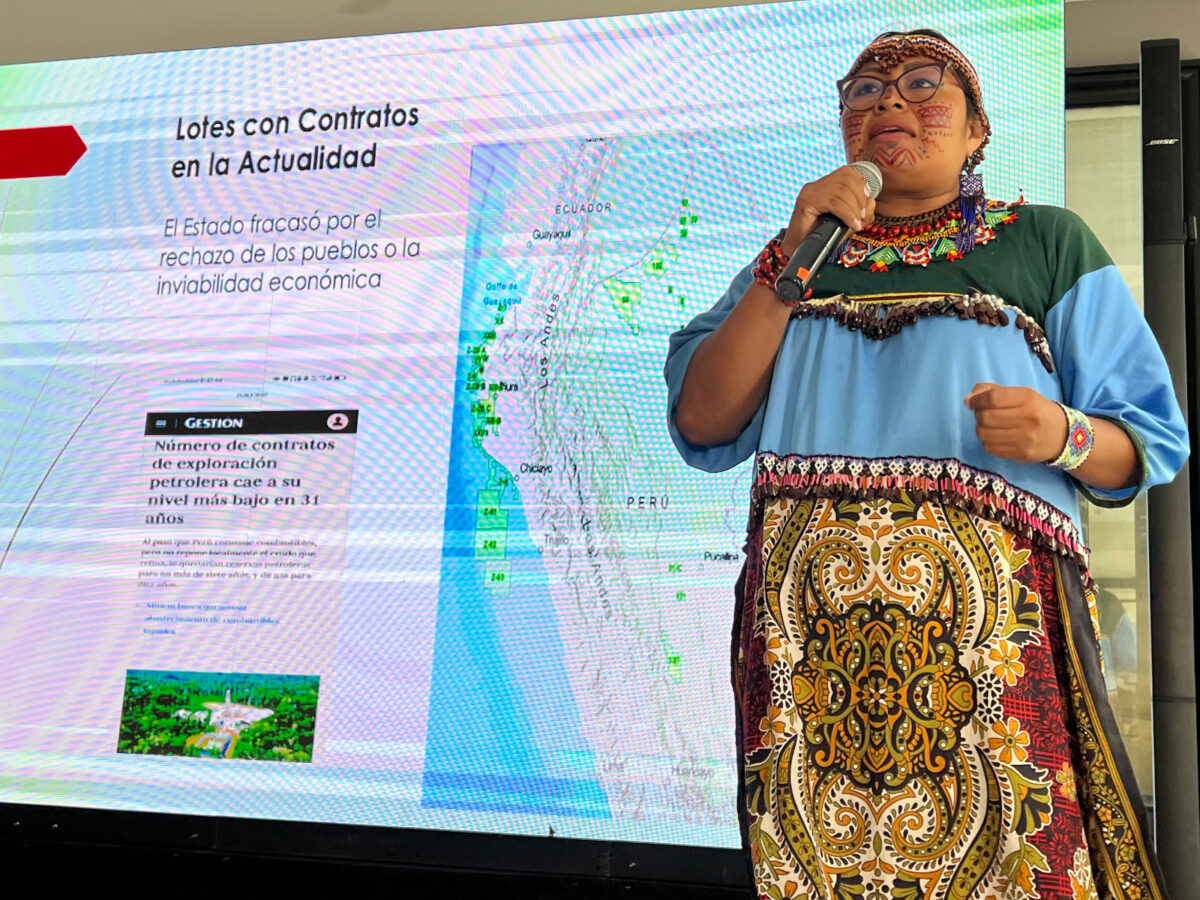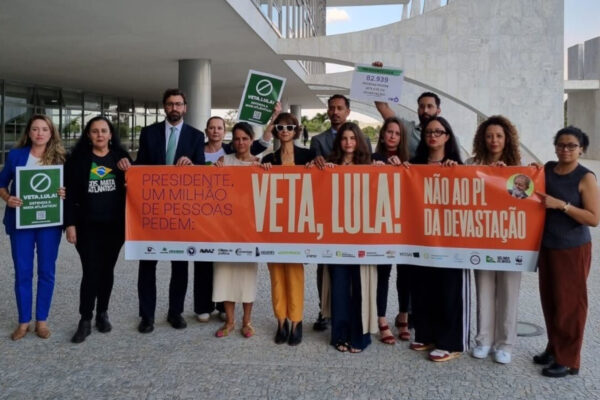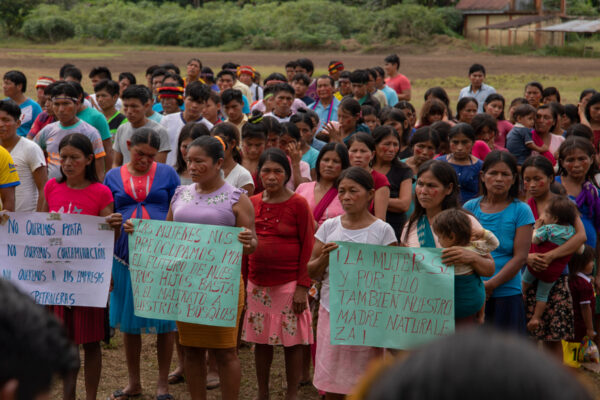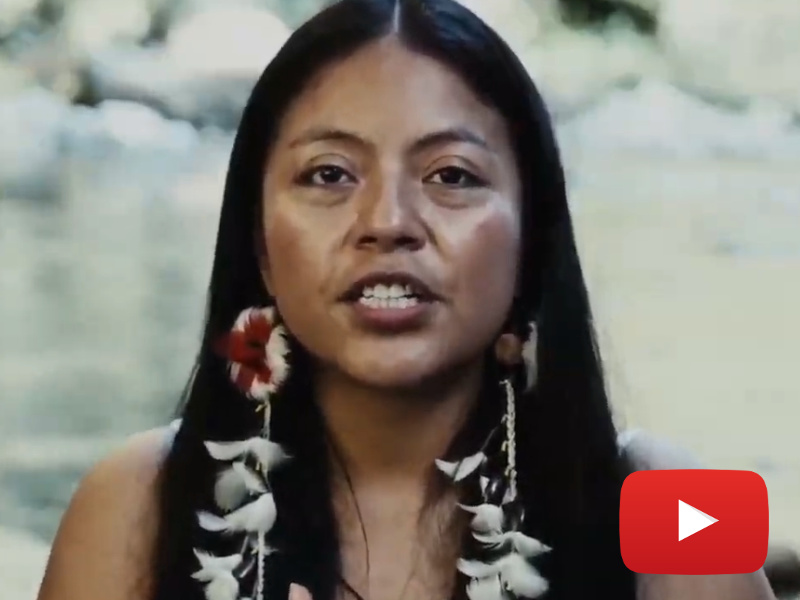View in Spanish | View in Portuguese
As COP30 unfolds in the Amazon, JPMorgan Chase – the world’s top financier of Amazon oil and gas – quietly added the Amazon Biome as a region where the bank will subject its financial services clients to enhanced review in its latest sustainability report, released in October 2025.
According to Stand.earth’s Amazon Oil and Gas Financing Database and Banks vs. the Amazon Scorecard, JPMorgan has financed nearly $2 billion since 2016 in Amazon oil and gas, and $326 million since 2024. Recent financing includes Gran Tierra, Petrobras, and Hunt Oil Peru, whose activities were not consented by affected Indigenous communities. It is yet to be seen if this policy update will impact financing to these harmful companies.
Martyna Dominiak, Stand.earth Senior Climate Finance Campaigner, said:
“JPMorgan Chase — the largest financier of oil and gas in the Amazon — is finally acknowledging that the Amazon rainforest and Indigenous Peoples’ rights are worth protecting. Updating its Amazon region policy ahead of COP30 is a welcome and long-overdue step, but enhanced review is simply not enough. Words must be matched by action: the bank’s continued financing of companies driving Amazon destruction puts the forest, and all of us, at grave risk. While this is far from a full Amazon exclusion policy, this move shows that pressure works. Now it’s time for other major financiers, like Bank of America, to follow suit.”
Notably, JPMorgan’s policy uses the RAISG geospatial definition of the Amazon Biome, which is widely recommended by Indigenous leaders and experts. While experts underscore that it’s promising to see this commitment during an increasingly censored political climate, the policy is far short of best practice for Indigenous Peoples and the Amazon, amid growing demands for a robust and immediate fossil fuel phase-out in the biome.
Yet, the policy falls short of simply excluding financing for Amazon oil and gas companies. There are many examples where banks claim to apply due diligence while continuing to harm the planet and people. Additionally, experts are concerned that while this offers progress in the Amazon, JPMorgan is backtracking in other areas, including removing some fossil fuel exclusions.
Olivia Bisa, President of the Autonomous Territorial Government of the Chapra Nation (Peru), said:
“The change announced by JPMorgan is merely a gesture, not a real transformation. We will not stop the climate crisis with small steps. The Amazon must be declared an Exclusion Zone for all extractive activities and the financing that enables them. As long as dollars continue to flow into fossil fuels, our peoples, our rivers, and life itself will continue to die. We demand that banks adopt financing exclusion policies, both at the project and corporate levels, for any extractive company operating in the Amazon.”
The bank also recently improved its Indigenous Peoples’ rights policies, following successful investor engagement led by United Church Funds and Investor Advocates for Social Justice earlier this year. JPMorgan committed not to finance clients that have violated human rights, and to assess clients for risks to Indigenous Peoples, including Free, Prior, and Informed Consent (FPIC), and address identified risks before proceeding with a transaction. However, the policy has shortcomings, as it does not explicitly recognize Indigenous Peoples’ right to self-determination and to say no to fossil fuel projects.
Allison Fajans-Turner, Senior Campaigner of Rainforest Action Network, said:
“JPMorgan Chase has finally taken an essential – if long-overdue – step to confront its role as the largest financier of oil and gas extraction in the Amazon. It’s the bare minimum that we should expect from other large backers of Amazon drilling like Bank of America. Promises on paper to respect Indigenous and human rights and screen clients operating in the Amazon biome fall far short of what’s needed: real financing exclusions applied to the Amazon and other fragile ecosystems and rigorous implementation of human rights protections for Indigenous peoples and all affected local communities.”
In 2024, JPMorgan also came under heavy scrutiny from the Indigenous Achuar, Wampís, and Chapra nations of the northern Peruvian Amazon, as well as faith-based investors, for its funding of the notorious polluter, state-run oil company Petróleos del Perú S.A. (Petroperú), and its Talara Refinery. According to Indigenous organizations and Amazon Watch, banks like JPMorgan have financed Petroperú despite its five-decade-long history of recurring oil contamination – much of which remains inadequately remediated.
Mary Mijares, Corporate Campaigns Manager of Amazon Watch, said:
“Years of steadfast organizing under the leadership of Amazonian Indigenous peoples have successfully pressured JPMorgan, the world’s largest fossil financier, to take a crucial step towards recognizing Indigenous and human rights in its corporate-level financing. However, JPMorgan must demonstrate that its policies have real teeth. As governments push to drill more Amazon crude, JPMorgan must commit not to support destructive expansion plans in Peru’s Block 64 and Ecuador’s oil round – both in clear violation of FPIC. Financing oil expansion ambitions will only bring our planet closer to the brink of deadly ecological and societal collapse.”
This comes ahead of a press conference this Saturday, November 15 at COP30 in Belem (11:30 GMT -3 / 15:30 CET in Press Conference Room 2, Area D, Blue Zone), Brazil – “The Foreign Money Driving Fossil Fuel Expansion in the Amazon” – where this breaking news and recent research will be highlighted. Watch the press conference online here.














